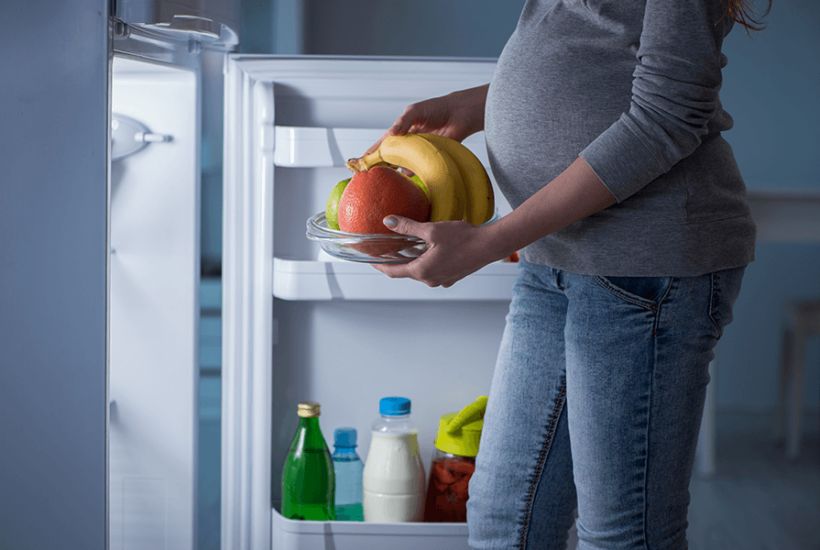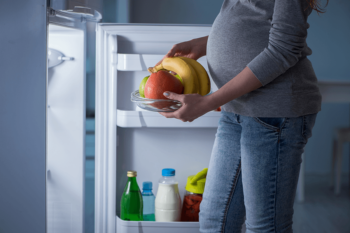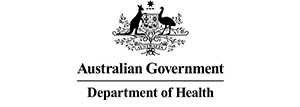Using health promotion to reduce the burden of obesity before and in pregnancy

Status completed
Start Date
End Date
More than half of women in Australia and other developed countries enter pregnancy overweight or obese. A higher body mass index before pregnancy increases the risk of complications during pregnancy.
This project aimed to create, capture and deliver health promotion, lifestyle improvement and obesity prevention strategically targeting women during pre-conception and pregnancy, to improve the health of women and the next generation.
Introduction
There is a clear imperative to reduce obesity, yet treating established obesity is intensive, costly, largely ineffective and unsustainable at a population level. This team has developed effective lifestyle interventions for reproductive-aged women and pregnancy, however, to date, no country has implemented such interventions and scaled them as a systems-level and policy-level evidence-based strategies targeting women pre-conception and pregnancy to prevent obesity.
Featured project resources
-
The first 2000 days: Giving our kids the best start for a healthier life
Resource category:Podcasts
Date -
A passion to address maternal and child obesity
Resource category:Podcasts
Date
Featured project news
-
Preconception health international conference presentations
News Category: Prevention Centre NewsDate -
The building blocks of prevention in the first 2000 days
News Category: Prevention Centre NewsDate -
The value of prevention: lifestyle interventions may be a cost-effective way to support healthy pregnancies
News Category: Prevention Centre NewsDate
About
Generating and translating knowledge in health promotion and lifestyle improvement prior to and during pregnancy to reduce the burden of maternal obesity
Project titleWhat is the issue?
Two-thirds of Australian adults are overweight or obese. Women in their reproductive years are leading this trend, gaining more weight yearly than older women and progressing more rapidly to obesity than men. Over half of women in Australia and other developed countries enter pregnancy overweight or obese. A higher body mass index (BMI) prior to pregnancy increases the risk of complications during pregnancy including gestational diabetes mellitus, pre-eclampsia, caesarean section, and large-for-gestational-age (LGA) infants.
There is a clear imperative to reduce obesity, yet treating established obesity is intensive, costly, largely ineffective and unsustainable at a population level. This leading team has developed effective lifestyle interventions for reproductive aged women and pregnancy, however, to date, no country has implemented such interventions and scaled them as a systems level- and policy-level evidence-based strategies targeting women pre-conception and pregnancy to prevent obesity.
How did the project address the issue?
The aim of this project was to create, capture and deliver health promotion, lifestyle improvement and obesity prevention strategically targeting women during pre-conception and pregnancy, to improve the health of women and the next generation.
Taking a systems implementation approach, the project team engaged with stakeholders, generated and translated new knowledge in the implementation of effective interventions and strategies at scale.
Relevance of the project for policy and practice
The delivery of effective interventions and tool kits will support women through pre-conception and pregnancy to live active and healthy lives.
This is the first project, nationally or internationally, to take such a systems approach in the maternal obesity space, and it will have flow on effects on childhood obesity. If we tackle obesity prevention from before conception, through pregnancy and into the postpartum, we will build effective and population level support for women and help prevent childhood obesity.
What were the outcomes?
The project implemented low-cost, translatable and scalable solutions to reduce the burden of maternal and childhood obesity including:
- Designing an innovative and engaging pre-conception health promotion program targeting reproductive aged women
- Developing evidence-based resources and an implementation strategy ready for translation and scale of pre-conception health promotion programs
- Mapping current practice, scope implementation enablers and barriers in pregnancy
- Co-designing implementation strategies and resources for integration of lifestyle interventions into routine antenatal care
- Identifying gaps in the training of medical doctors and nurses/midwives to support lifestyle modification pre-conception and in pregnancy
- Co-designing an accessible, low-cost, capacity building intervention to up-skill health professionals to support lifestyle modification and deliver pre-conception and antenatal lifestyle interventions effectively.
News and media
-
Preconception health international conference presentations
News Category: Prevention Centre NewsDate -
The building blocks of prevention in the first 2000 days
News Category: Prevention Centre NewsDate -
The value of prevention: lifestyle interventions may be a cost-effective way to support healthy pregnancies
News Category: Prevention Centre NewsDate -
International Women’s Day – Changing climates
News Category: Prevention Centre NewsDate -
World Obesity Day – Everybody needs to act
News Category: Prevention Centre NewsDate -
Language matters: pregnancy and overweight or obesity
News Category: Media coverageDate
Other news and media
2017
- Australian Doctor: Pregnancy weight gain – getting it right
Resources
-
The first 2000 days: Giving our kids the best start for a healthier life
Resource category:Podcasts
Date -
A passion to address maternal and child obesity
Resource category:Podcasts
Date
Publications
Other publications
2019
- Kothe K, Bailey C, Weiner C, Nagle C, Nowson C, Hill B, McPhie S, Savaglio M, Skouteris H. An Investigation of Australian Midwifery Curricula for Obesity Management And Health Behaviour Change Training, Nurse Education in Practice, 2019; 36, 54-57
Presentations
- Teede H. International behavioural trials network conference. Plenary on stakeholders engagement in research using healthy lifestyle as an exemplar, Montreal, Canada, 2020.
- Teede H and Skouteris H. The Collective for Action on Obesity, national leadership group meetings, 2020.
- Lim S. Wheelers Hill Library, Monash City Council Community Talk, August 2019, Wheelers Hill, Vic Australia. Invited speaker – Polycystic Ovary Syndrome (PCOS) Information Session
- Walker R. Department of General Practice, Monash University Research Seminar, July 2019, Melbourne, Australia. Invited speaker – Maternal nutrition: A double-dose of prevention.
- Hill B, Ling B, Skouteris H, Bruce L, Moran L, Teede H, Mishra G. Australasian Society of Lifestyle Medicine Conference, June 2019, Auckland, New Zealand. Poster – Lifestyle and psychological characteristics of women with pregnancy intentions.
- Hill B, Ling B, Skouteris H, Bruce L, Moran L, Teede H, Mishra G. Australasian Society of Lifestyle Medicine Conference, June 2019. Auckland, New Zealand. Oral presentation and poster – Associations between future parenthood aspirations and lifestyle and psychological characteristics in women.
- Skouteris H. Capacity in building healthcare improvement. 16th Healthcare Executive Management Development Programme. Mysuru, India. 2-9 February 2019.
- Bergmeier H. Maternal body image during pregnancy, postpartum and early parenting. Expert panel discussion, PANDA (Perinatal Anxiety and Depression) Australia Professional Training. Richmond, Australia, 5 December 2018.
- Hill B, Moran LJ, Teede H, Skouteris H. Lifestyle intervention to prevent obesity during pregnancy: A view to the future. International Congress of Behavioral Medicine, Santiago, Chile. Oral in symposium, The impact of early environments on maternal and child obesity and overweight.
- Hill B, Kothe EJ, Currie S, Danby M, North M, Lang A, Bailey C, Moran LJ, Teede H, Skouteris H. Pregnancy intentions, health-related lifestyle behaviours, and psychological wellbeing: A systematic mapping review of the literature. International Congress of Behavioral Medicine. Santiago, Chile. November 2018.
- Skouteris H. Maternal body image across pregnancy, postpartum and early parenting, PANDA (Perinatal Anxiety & depression Australia), Victoria, Australia. November 2018.
- Skouteris H. Health in preconception and pregnancy: Prevention of maternal obesity, University of Thessaloniki, Greece. September 2018.
- Skouteris H. Health in preconception and pregnancy: An implementation science approach to reducing the burden of maternal obesity. Warwick University, UK, April 2018.
People
Lead investigators
Project team
-
Professor Helen Skouteris
Monash University -
Associate Professor Jacqueline Boyle
Monash University -
Tracy Van Dyke
Monash University -
Josie Johnson
Monash University -
Cheryce Harrison
Monash University -
Dr Briony Hill
Monash University -
Dr Cate Bailey
Monash University -
Heidi Bergmeier
Monash University -
Dr Grace Xie
Monash University -
Ruth Walker
Monash University

















